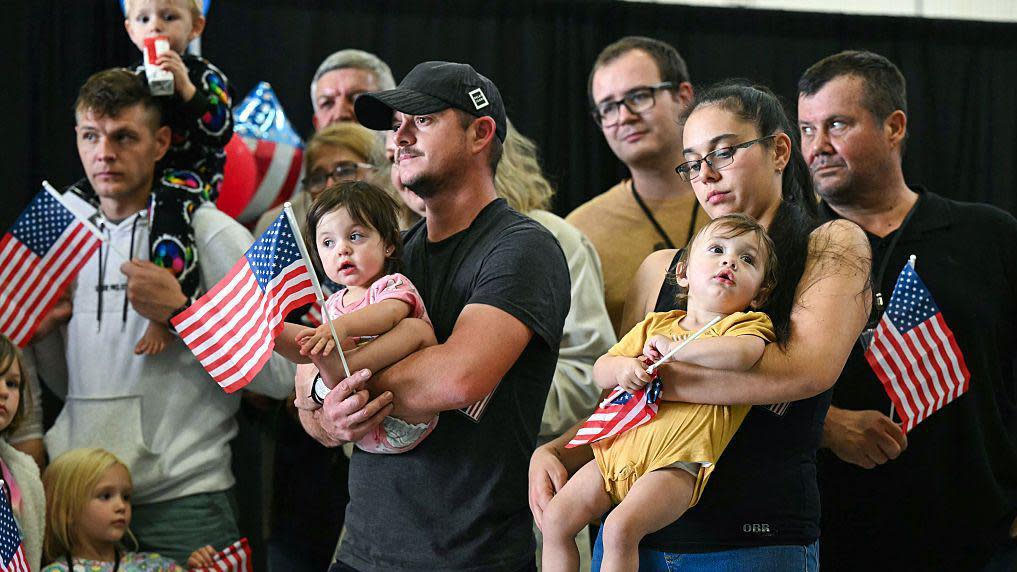Photo Credit: Getty Images
On Monday, 59 white South Africans landed at Dulles International Airport near Washington, D.C., under a refugee program specifically expedited by the Trump administration. The group, primarily Afrikaners of Dutch descent, arrived to warm receptions and waving flags — a sharp contrast to the stalled refugee applications of thousands from war-torn nations.
President Donald Trump defended the fast-tracked resettlement, claiming that "a genocide is taking place" against white farmers in South Africa. "Farmers are being killed," he told reporters, "they happen to be white, but whether they're white or black makes no difference to me." This marked one of his strongest endorsements of a long-debunked claim circulating in far-right circles.
The move has triggered intense criticism both domestically and abroad. South African President Cyril Ramaphosa rejected Trump's assertion in a phone call, stating bluntly, "They don't fit that bill." He emphasized that there's no credible evidence of targeted persecution: "A refugee is someone who has to leave their country out of fear of political, religious, or economic persecution."
In a further escalation, South Africa's ambassador to the U.S., Ebrahim Rasool, was expelled earlier this year after accusing the Trump administration of exploiting "white victimhood." The U.S. State Department retaliated by accusing Rasool of "race-baiting."
Critics within the U.S. also decried the administration's selective acceptance of refugees. Melissa Keaney of the International Refugee Assistance Project called the fast-tracking "a lot of hypocrisy and unequal treatment," pointing to over 120,000 conditionally approved refugees left in limbo due to Trump's indefinite suspension of the broader U.S. Refugee Admissions Program.
According to South African police, 44 murders occurred on farms in 2024, eight involving farmers. No racial breakdown exists for these crimes, and the "white genocide" narrative remains unsupported. Prominent Afrikaner journalist Max du Preez labeled the claim "a total absurdity" and "based on nothing."
The Episcopal Church has since severed its refugee partnership with the U.S. government. "One group of refugees, selected in a highly unusual manner, received preferential treatment," wrote Presiding Bishop Sean Rowe.
Meanwhile, underlying tensions between the U.S. and South Africa have deepened, with disputes over land reform, diplomacy at the International Court of Justice, and now refugee policy. As Vice-President JD Vance wrote bluntly on X: "Crazy."
In the midst of global displacement crises, the Trump administration's prioritization of one politically charged group underlines a deeper reshaping of U.S. asylum policy — one increasingly dictated by ideology rather than humanitarian urgency.


